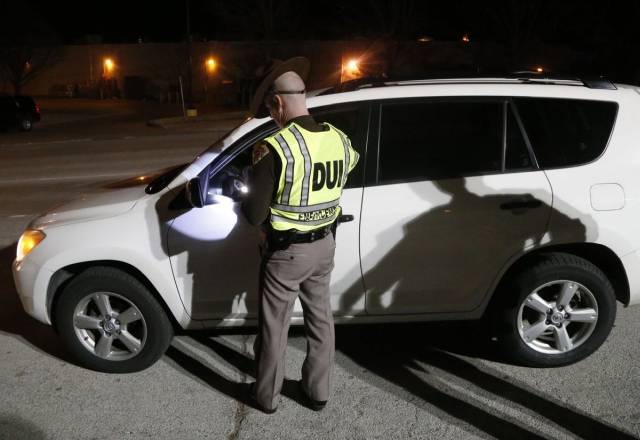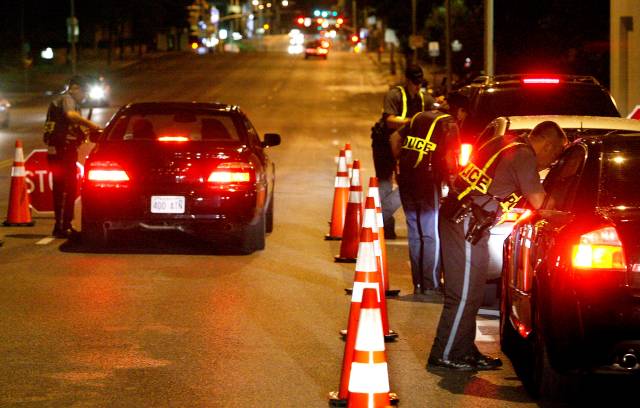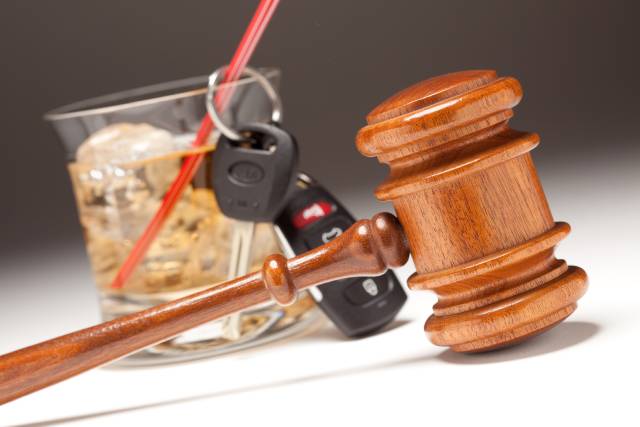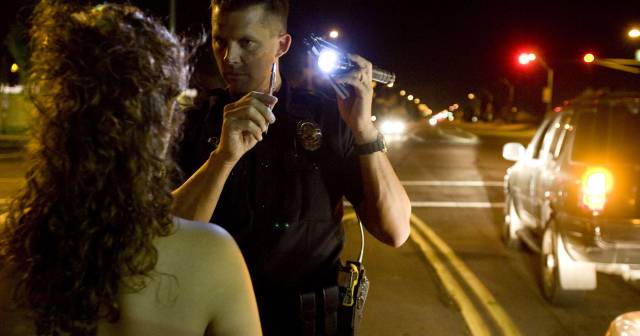When faced with DUI charges in Colorado, it is essential to have a strong defense strategy in place. This article will present eight of the best strategies to fight DUI charges, providing a persuasive, knowledgeable, and experienced perspective.
From hiring an experienced DUI defense attorney to challenging the accuracy of field sobriety tests, each strategy aims to help individuals navigate the legal process and seek alternative sentencing options.
By implementing these strategies, individuals can increase their chances of achieving a favorable outcome.
Hiring an Experienced DUI Defense Attorney
To effectively navigate the complexities of DUI charges in Colorado, it is crucial to secure the services of an experienced DUI defense attorney. DUI charges can have severe consequences, including fines, license suspension, and even jail time. Therefore, it is essential to have a knowledgeable and experienced advocate on your side who can fight to protect your rights and achieve the best possible outcome for your case.
An experienced DUI defense attorney understands the intricacies of Colorado’s DUI laws and is well-versed in the legal strategies and defenses that can be employed to challenge the prosecution’s case. They have the expertise to analyze the evidence against you, such as breathalyzer results or field sobriety tests, and identify any flaws or violations of your rights that could be used to your advantage.
Furthermore, a seasoned defense attorney will have established relationships with local prosecutors and judges, which can be beneficial in negotiating plea deals or advocating for a reduction in charges. Their knowledge of the local legal landscape can be invaluable in building a strong defense strategy tailored to your specific circumstances.
By hiring an experienced DUI defense attorney, you are investing in their expertise and dedication to protecting your rights. They will guide you through the legal process, explain your options, and provide you with the best possible defense.
Don’t leave your future to chance – enlist the help of an experienced DUI defense attorney to ensure the best outcome for your case.
Understanding the Legal Process
Navigating the legal process after being charged with a DUI in Colorado requires a comprehensive understanding of the steps involved and the potential consequences. It is essential to be well-informed about the legal process to effectively fight DUI charges. By understanding the legal process, individuals can make informed decisions, protect their rights, and potentially mitigate the consequences they may face.
The legal process begins with the arrest and booking of an individual for DUI. Following this, the accused will be required to attend an arraignment, where they will enter a plea of guilty or not guilty. It is crucial to consult with an experienced DUI defense attorney during this stage to ensure the best possible outcome.
After the arraignment, the case enters the discovery phase, where both the prosecution and defense exchange evidence and information. This phase is crucial as it allows the defense to evaluate the strength of the prosecution’s case and identify potential weaknesses. It is important to thoroughly review all evidence and consult with experts if necessary to build a strong defense strategy.
Once the discovery phase is complete, the case proceeds to pre-trial motions and negotiations. This stage involves filing motions to suppress evidence or dismiss the case based on legal grounds. Negotiations with the prosecution may also occur during this stage, where a plea bargain may be reached.
If no plea agreement is reached, the case proceeds to trial. It is important to have an experienced DUI defense attorney who is skilled in presenting evidence, cross-examining witnesses, and arguing for the defendant’s innocence.
Understanding the legal process is crucial for those facing DUI charges in Colorado. By having a comprehensive understanding of the steps involved, individuals can make informed decisions and effectively fight DUI charges. It is essential to consult with an experienced DUI defense attorney to navigate the legal process and protect one’s rights.
Challenging the Traffic Stop
After understanding the legal process, the next step in effectively fighting DUI charges in Colorado is to challenge the legitimacy of the traffic stop. This is a crucial aspect of DUI defense because if the traffic stop was not conducted in accordance with the law, any evidence obtained thereafter may be deemed inadmissible in court. Challenging the traffic stop requires a thorough understanding of the applicable laws and a meticulous examination of the circumstances surrounding the stop.
Here are three key points to consider when challenging the traffic stop:
- Was there reasonable suspicion for the stop? Law enforcement must have a valid reason to believe that a traffic violation or crime has occurred in order to initiate a traffic stop. It is important to evaluate whether the officer had sufficient grounds to stop your vehicle.
- Was the stop conducted in a lawful manner? The officer must adhere to proper procedures during the traffic stop, such as activating the emergency lights and following the proper protocol. Any deviation from these procedures could weaken the prosecution’s case.
- Were your rights violated during the stop? It is crucial to evaluate whether your constitutional rights, such as the Fourth Amendment protection against unreasonable searches and seizures, were violated during the traffic stop. If your rights were infringed upon, it may provide grounds to challenge the evidence against you.
Questioning the Accuracy of Field Sobriety Tests
When challenging DUI charges in Colorado, it is essential to question the accuracy of field sobriety tests. These tests, which are commonly used by law enforcement officers to determine a driver’s level of impairment, are not foolproof and can be influenced by various factors. By highlighting the potential flaws and limitations of field sobriety tests, individuals facing DUI charges can cast doubt on the reliability of the evidence against them.
One effective way to question the accuracy of field sobriety tests is to highlight the subjective nature of these assessments. Unlike breathalyzer or blood tests, field sobriety tests rely on an officer’s interpretation of an individual’s performance. This subjectivity leaves room for error and bias, as an officer’s judgment can be influenced by personal beliefs or preconceptions.
To further demonstrate the limitations of field sobriety tests, consider the following table:
| Field Sobriety Test | Potential Flaws |
|---|---|
| Horizontal Gaze Nystagmus (HGN) Test | Inaccurate results due to medical conditions or other factors affecting eye movements |
| Walk-and-Turn Test | Difficulty for individuals with physical impairments or nervousness |
| One-Leg Stand Test | Balance issues unrelated to alcohol impairment |
| Finger-to-Nose Test | Lack of standardized procedures and potential for misinterpretation |
Analyzing the Reliability of Breathalyzer Results
When it comes to analyzing the reliability of breathalyzer results, two key points must be considered.
First, it is crucial to ensure that breathalyzer devices are calibrated accurately and regularly maintained to ensure their accuracy.
Second, there are potential factors that can affect breathalyzer results, such as medical conditions, certain diets, and even environmental factors.
Understanding these points is essential in effectively challenging breathalyzer results and building a strong defense against DUI charges.
Calibrating Breathalyzer Devices Accurately
To ensure the reliability of breathalyzer results, it is essential to accurately calibrate the devices used in DUI testing in Colorado. Calibrating breathalyzer devices is a critical step in the process of obtaining accurate and valid results. Here are three key reasons why accurate calibration is crucial:
- Accuracy: Proper calibration ensures that breathalyzer devices provide accurate readings of blood alcohol concentration (BAC) levels. When a device is not calibrated correctly, it can lead to false readings, potentially resulting in unjust DUI charges.
- Consistency: Regular calibration ensures that breathalyzer devices consistently provide reliable results. By calibrating the devices at specified intervals, law enforcement agencies can maintain the accuracy and consistency of their DUI testing process.
- Admissibility: In DUI cases, the admissibility of breathalyzer results in court depends on the calibration records of the device used. Accurate calibration records demonstrate that the device was functioning properly at the time of testing, strengthening the reliability and credibility of the results.
Potential Factors Affecting Breathalyzer Results
One important factor to consider in analyzing the reliability of breathalyzer results is the potential influence of various external and internal factors.
External factors such as atmospheric conditions, temperature, and the presence of interfering substances can significantly affect the accuracy of breathalyzer readings. For instance, extreme cold or heat can impact the functioning of the device, leading to inaccurate results. Similarly, the consumption of certain substances like mouthwash, breath mints, or even certain medical conditions like acid reflux can introduce alcohol into the breath, resulting in higher readings.
Additionally, the calibration and maintenance of the breathalyzer device itself can also impact its reliability.
It is crucial to thoroughly examine these factors when challenging breathalyzer results in DUI cases, as they can provide strong grounds for defense.
Investigating Potential Police Misconduct
When facing DUI charges in Colorado, it is crucial to thoroughly investigate potential police misconduct to strengthen your defense. Gathering credible evidence is essential to challenge the credibility of the arresting officer’s actions or statements.
Identifying witness testimonies can provide valuable insights into any misconduct that may have taken place during the arrest. Additionally, analyzing police procedural errors can help identify any violations that could potentially invalidate the charges against you.
Gathering Credible Evidence
A crucial step in mounting a strong defense against DUI charges in Colorado involves gathering credible evidence to investigate potential police misconduct. This evidence can not only help challenge the credibility of the arresting officer but also provide an opportunity to uncover any violations of your constitutional rights.
Here are three key strategies to consider when gathering evidence to investigate police misconduct:
- Document any inconsistencies: Take detailed notes of the events leading up to and during your arrest. Look for any discrepancies in the officer’s testimony, the field sobriety test results, or the breathalyzer readings. These inconsistencies can be used to cast doubt on the accuracy and reliability of the evidence presented against you.
- Collect witness statements: Identify and interview any witnesses who may have observed the arrest or interacted with the arresting officer. Their testimonies can provide valuable insights into the officer’s behavior, demeanor, and adherence to proper procedures.
- Request relevant records: Obtain copies of the police reports, dashcam or bodycam footage, and any other records related to your arrest. Analyze these materials carefully for any indications of police misconduct, such as improper search and seizure, failure to administer the sobriety tests correctly, or violations of your Miranda rights.
Identifying Witness Testimonies
To thoroughly investigate potential police misconduct, it is essential to identify witness testimonies that can provide valuable insights into the officer’s behavior, demeanor, and adherence to proper procedures.
Witness testimonies play a crucial role in revealing any discrepancies or misconduct during a DUI arrest. These testimonies can shed light on whether the officer followed the correct protocol, conducted the field sobriety tests accurately, or made any false statements.
Identifying witnesses who were present at the scene or interacted with the officer during the arrest is paramount. Their statements can help corroborate or refute the officer’s account of events and provide a strong defense strategy.
Experienced DUI defense attorneys have the skills to interview witnesses, ask the right questions, and uncover any potential police misconduct, ultimately strengthening the defendant’s case.
Analyzing Police Procedural Errors
One effective approach is to thoroughly analyze any potential police procedural errors, as it allows for the investigation of potential police misconduct in DUI cases. Analyzing police procedural errors can uncover critical information that can be used to challenge the validity of the arrest and the evidence presented by the prosecution.
Here are three key areas to focus on when analyzing police procedural errors:
- Breathalyzer calibration: It is important to examine whether the breathalyzer used in the arrest was properly calibrated and maintained. Any issues with calibration can cast doubt on the accuracy of the breathalyzer results.
- Field sobriety test administration: Evaluating the administration of field sobriety tests is crucial. Mistakes made by the arresting officer during the test can weaken the prosecution’s case.
- Violation of constitutional rights: It is essential to assess whether the arresting officer violated any constitutional rights during the arrest. This could include conducting an illegal search or seizure or failing to read the suspect their Miranda rights.
Seeking Alternative Sentencing Options
When facing DUI charges in Colorado, individuals can explore alternative sentencing options to potentially mitigate the severity of their consequences. Seeking alternative sentencing options can be a strategic approach for those who want to avoid or minimize jail time, hefty fines, and other harsh penalties associated with a DUI conviction.
One option is to participate in a substance abuse treatment program. By voluntarily enrolling in and completing such a program, individuals can demonstrate their commitment to addressing any underlying issues related to alcohol or drug use. This proactive step may convince the court to consider alternative sentencing options, such as probation or a reduced sentence.
Another alternative sentencing option is community service. Engaging in community service activities not only allows individuals to give back to the community but also shows their willingness to make amends for their actions. This can be viewed favorably by the court and may result in a more lenient sentence.
Additionally, some individuals may be eligible for a first-time offender diversion program. This program allows qualifying individuals to complete certain requirements, such as education classes and community service, in exchange for having their charges dismissed or reduced. It is important to consult with an experienced DUI attorney to determine eligibility and navigate the application process.
Building a Strong Defense Strategy
Building a strong defense strategy is crucial when facing DUI charges in Colorado. With the potential consequences of a DUI conviction, it is essential to employ the right tactics to fight against these charges. Here are three key strategies to consider:
- Challenge the legality of the stop: In some cases, law enforcement officers may not have had a valid reason to stop your vehicle. If this can be proven, any evidence collected during the stop may be deemed inadmissible in court. It is important to thoroughly review the circumstances surrounding the stop and identify any potential violations of your rights.
- Question the accuracy of BAC testing: Breathalyzer and blood tests are commonly used to measure blood alcohol concentration (BAC). However, these tests are not infallible and can produce inaccurate results. Challenging the accuracy and reliability of these tests can be a critical aspect of your defense strategy.
- Investigate any procedural errors: Law enforcement officers are required to follow specific procedures during a DUI arrest. Any deviations or errors in these procedures could weaken the prosecution’s case. By thoroughly examining the arrest process, you may be able to identify procedural errors that can be used to your advantage.
Conclusion
In conclusion, when facing DUI charges in Colorado, it is crucial to hire an experienced DUI defense attorney who can navigate the legal process and employ effective strategies to fight the charges.
By challenging the traffic stop, questioning the accuracy of field sobriety tests, analyzing the reliability of breathalyzer results, investigating potential police misconduct, seeking alternative sentencing options, and building a strong defense strategy, individuals can increase their chances of achieving a favorable outcome in their case.




